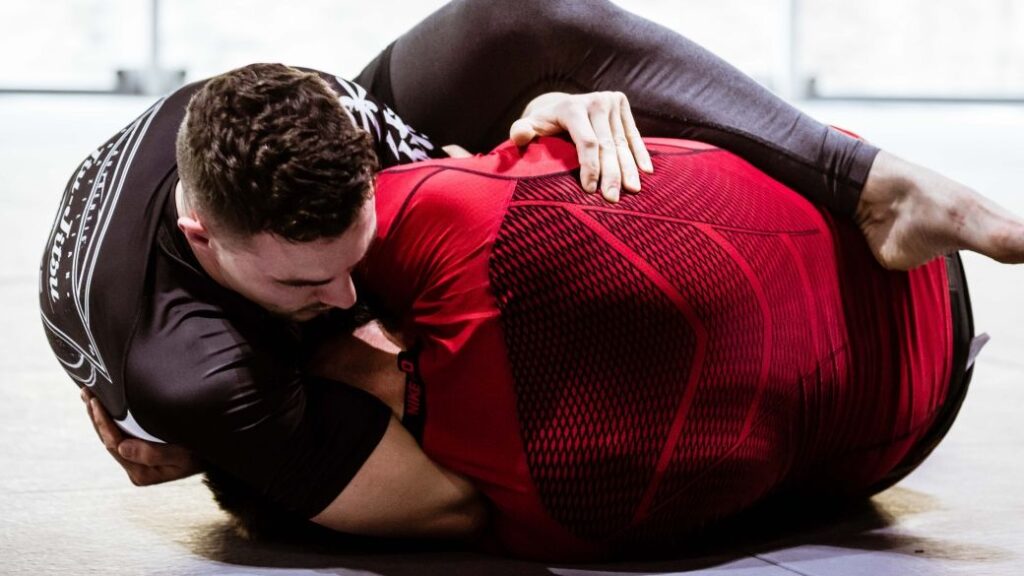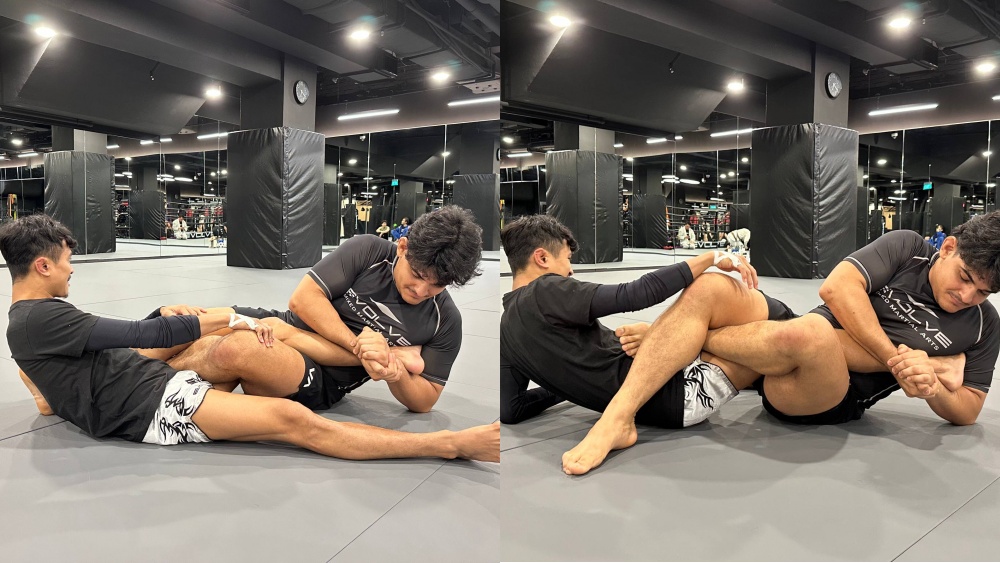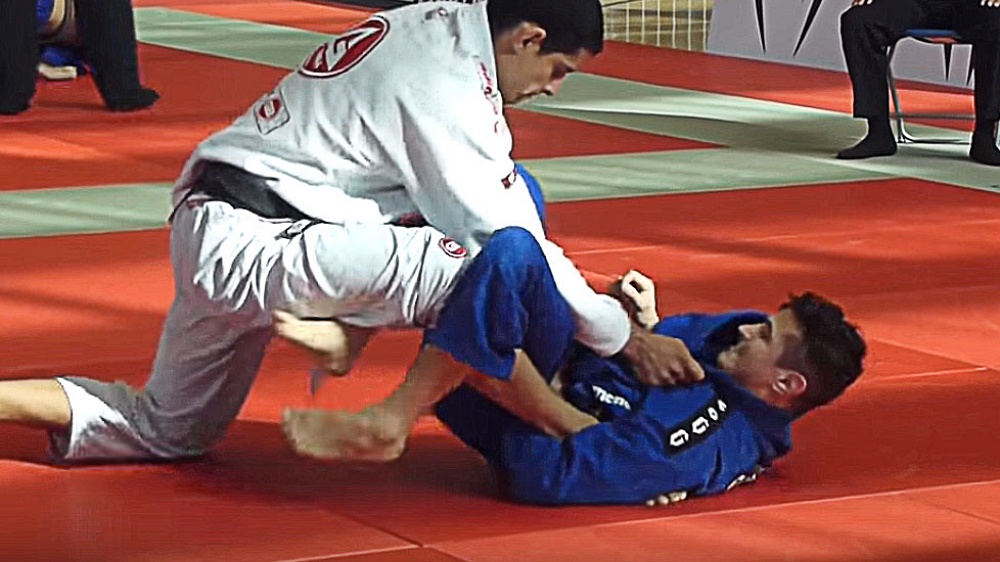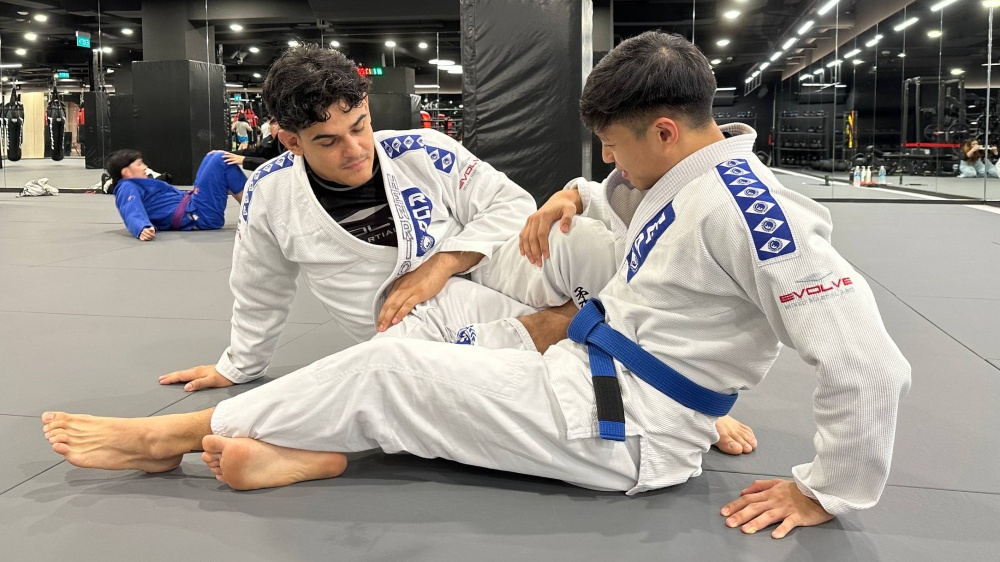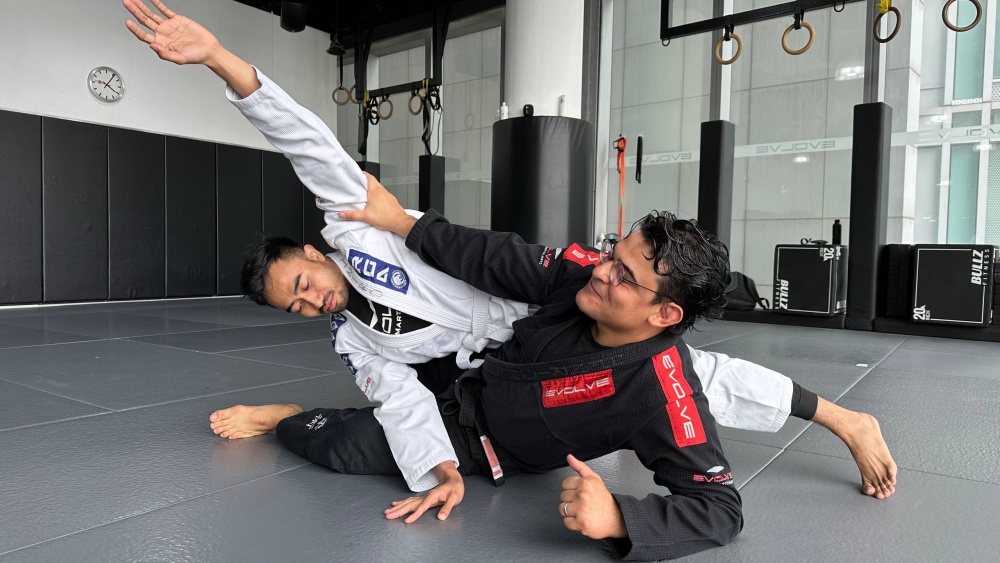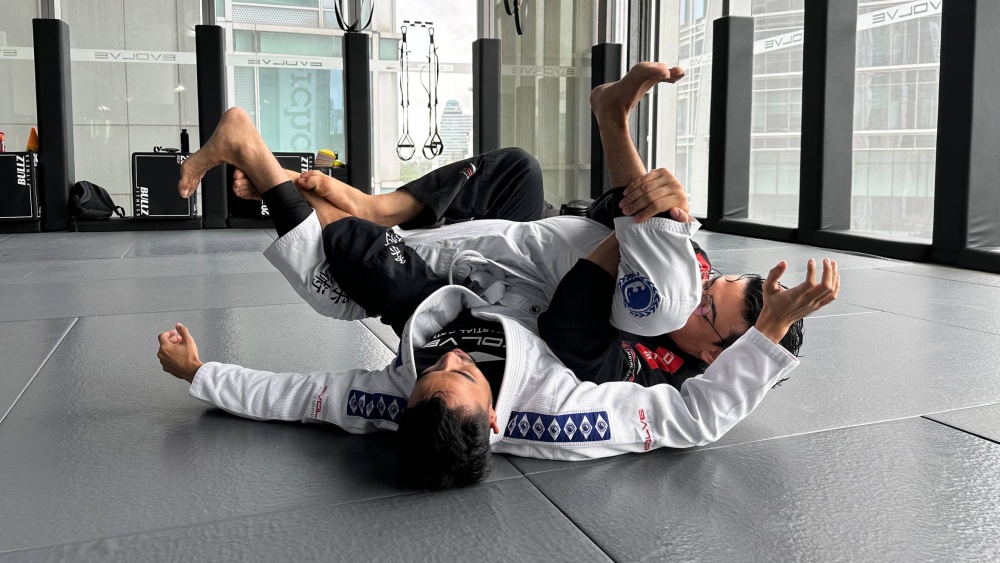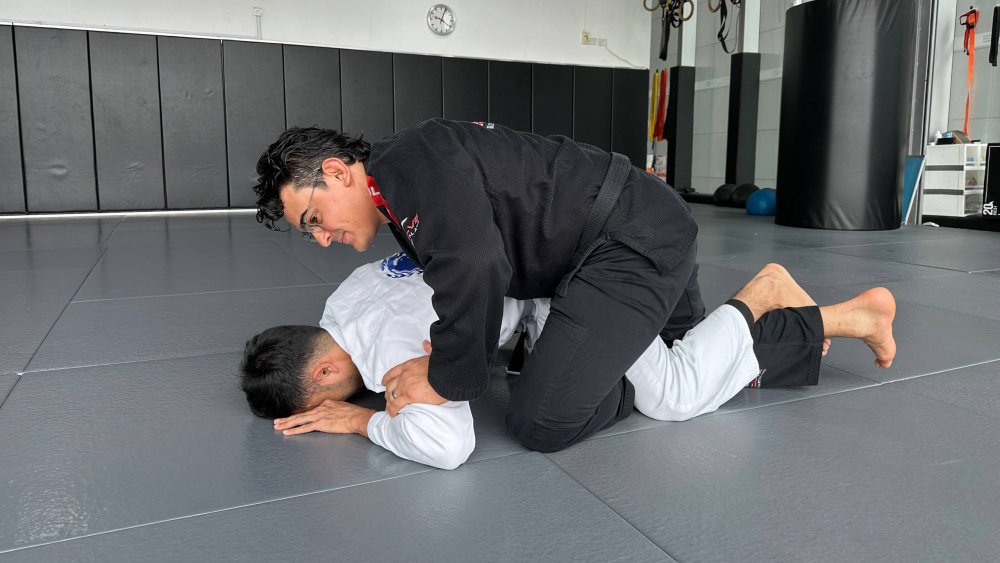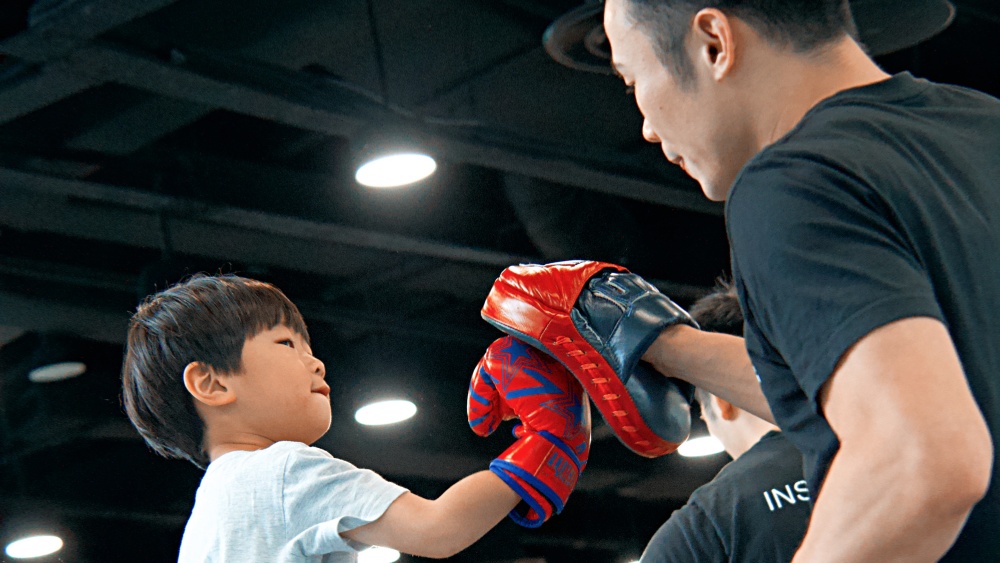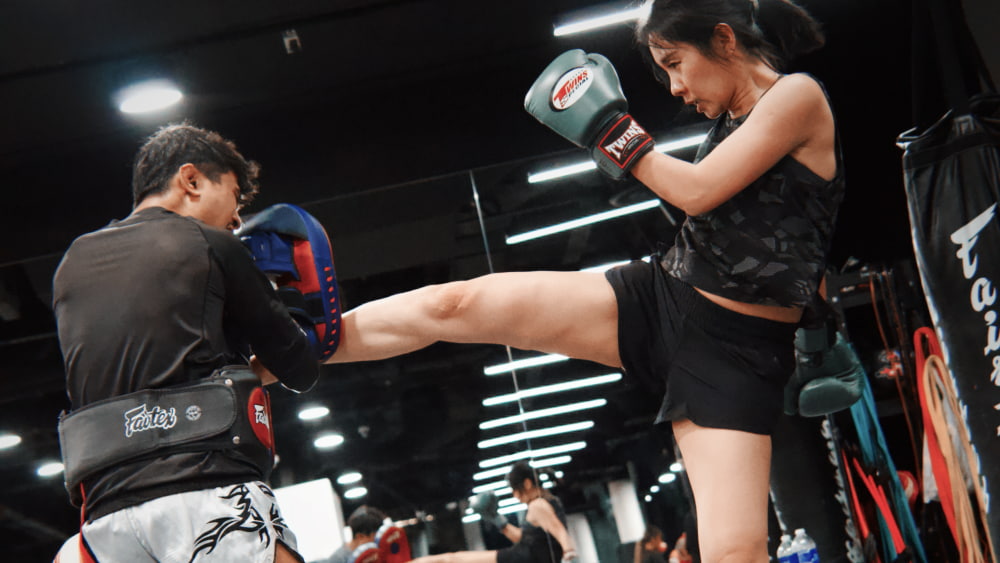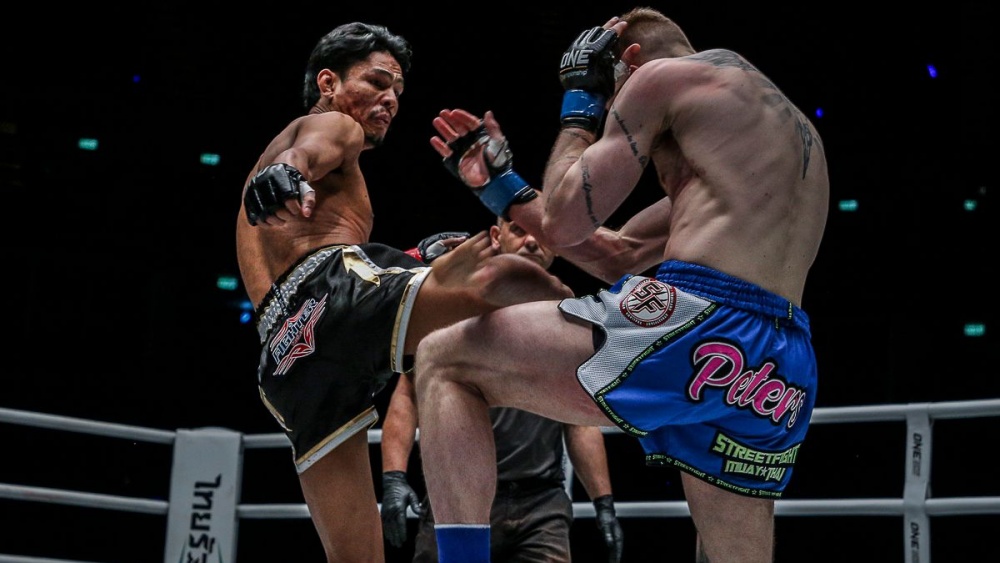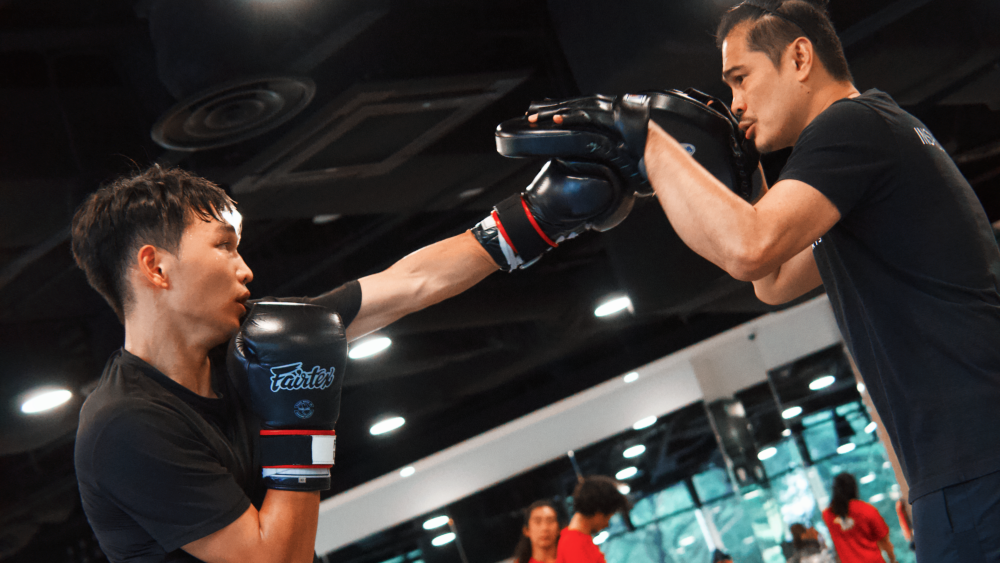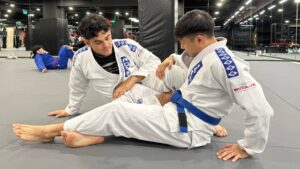The guillotine choke is a submission that can be traced back to the earliest days of Brazilian Jiu-Jitsu (BJJ). And although it is typically one of the first chokes that students are taught, it is extremely effective and frequently used at the highest levels of both BJJ and MMA.
The choke, named after the medieval torture device, places an opponent’s head under the armpit and the forearm under his or her neck, giving the opponent the appearance of being trapped in a guillotine. The choke works by putting pressure on the carotid arteries, forcing an opponent caught in the submission to tap out. However, it should be noted that the guillotine choke can also function as an air choke when the forearm is pressed against an opponent’s windpipe. In practice, though, the guillotine choke usually functions as a combination of the two, with pressure being placed on the carotid arteries and windpipe, making it extremely uncomfortable for the opponent.
The guillotine choke, in addition to being effective, is highly versatile, offering a number of different variations, including the arm-in guillotine, the 10-finger guillotine, the high-elbow guillotine, and the one-handed guillotine. In addition, the guillotine can be used as a position, giving the attacking student control of his or her opponent. Once control of the head or control of the head and arm have been established, the attacking student can begin working to sweep the opponent, pass his or her guard, or transition to other submissions. Given its usefulness as a submission, position, and self-defense technique, the guillotine is a technique that all BJJ students should thoroughly master. Below is an overview of the guillotine choke.
When To Use The Guillotine
The guillotine can be performed in a variety of situations. However, it is particularly effective against wrestlers, as they have a tendency to shoot for takedowns with their heads facing the mat. Of course, it is also extremely effective against untrained opponents who attempt to tackle you to the ground in self-defense situations. In the event that a BJJ practitioner somehow ends up being taken down by an untrained opponent, the attacker’s neck will almost always be left exposed for the guillotine. That being said, the most common variation of this choke is probably the standard closed guard guillotine, as the bottom closed guard is the position in which a student is most likely to end up after being taken down. However, the guillotine choke can be completed from a number of other positions, including the mount, sprawl, and standing.
Executing The Guillotine Choke
While general guidelines for completing the guillotine choke are described above, below are step-by-step details for completing a common variation of this submission—the closed guard guillotine choke. In this variation of the closed guard guillotine choke, the attacking student pulls his opponent from a standing position into the closed guard before completing the submission.
- From the standing position, pull your opponent’s head down using a collar tie grip with one arm.
- Wrap your arm around and under your opponent’s neck.
- Insert your opposite arm beneath the opponent’s arm and grab your own wrist.
- Squeeze your elbow.
- Sit down, bringing your opponent to the ground.
- Close your guard.
- Bring your elbow towards your hips and squeeze, completing the submission.
Tips For Escaping The Guillotine Choke
Not only is it important to understand the different ways in which the guillotine choke can be applied, but students should also be comfortable with escaping from this position. Below are a few tips for escaping the guillotine choke.
- Stay calm. Keep your body loose and relaxed. This is a principle to keep in mind when caught in any submission. Panicking will only make the submission tighter and interfere with your ability to think clearly.
- Place your arm that is opposite of the side your head is trapped on over your opponent’s shoulder.
- Place the arm that is over your opponent’s shoulder as high as possible, putting pressure on his or her face with your own shoulder. This releases some of the tension on your neck, buying you time before you are forced to submit.
- Take your opposite arm and press it against your opponent’s leg, bending your elbow. It’s important to keep the elbow bent when performing this step, as it will you’re your opponent extremely uncomfortable, forcing him to open up his guard.
- Place your leg over the leg that your elbow was pressed against. Free your opposite leg by sliding it out.
- Rotate your hips to the side of your opponent’s body that is opposite your head.
- Once you have rotated your hips, your opponent should be forced to release the choke.
Become A Choke Artist
BJJ is famous for its wide variety of chokes. And the great thing about chokes is that they can be successfully applied on bigger, stronger opponents. Therefore, chokes epitomize BJJ’s philosophy of using leverage, intelligence, and patience to defeat opponents of all shapes and sizes. Would you like to learn how to defend yourself against anyone, regardless of their size or strength? Would you like to become a choke artist? Regardless of your athletic ability, weight, fitness level, age, sex, or strength, BJJ is for you! Sign up for a complimentary trial class, and we know that you’ll soon love BJJ as much as we do!
Book your complimentary trial class with our World Champions below!
If you have any other questions regarding Evolve MMA and the programs we offer, you can get in touch with our membership executives at the following locations:
Evolve MMA (Far East Square)
26 China Street
Far East Square #01-01
Singapore 049568
Phone: (65) 6536 4525
Evolve MMA (Orchard Central)
181 Orchard Road
#06-01 Orchard Central
Singapore 238896
Phone: (65) 6536 4556
Evolve MMA (KINEX)
11 Tanjong Katong Road
#02-52 KINEX
Singapore 437157
Phone: (65) 6288 2293
Evolve MMA (Clarke Quay Central)
6 Eu Tong Sen Street
#04-18 Clarke Quay Central
Singapore 059817
Phone: (65) 6226 2150
